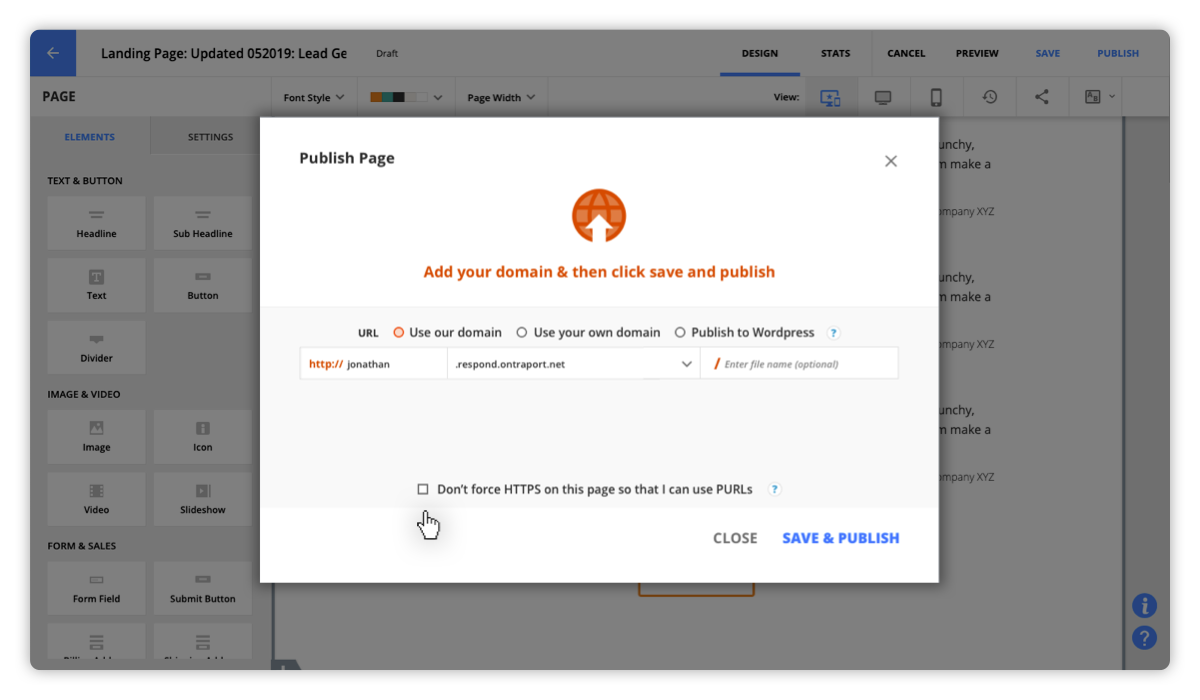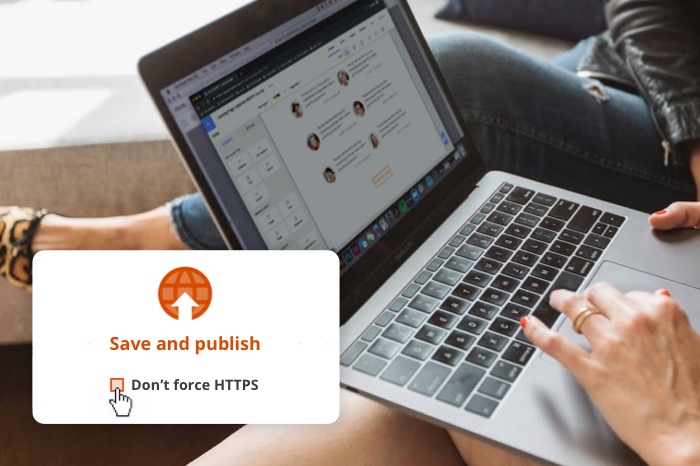
This applies to new pages you create; to activate this feature on existing pages, simply uncheck the “Do not force SSL” checkbox in the Publish dialog. Note that if your existing page already is hosted on an SSL domain, the checkbox will not appear since those pages are already SSL.
SSLs ensure that all data entered on your page remains private and that your pages display as secure. Secure pages are now the standard for most browsers, and many warn visitors if they attempt to reach non-secure pages. This feature gives your visitors the peace of mind that their connection is always private and that their information is protected. We provide a free SSL certificate to all Ontraport-provided domains and to custom domains using our name servers or A records.
If you use Personalized URLs (PURLs), in order for your PURLs to populate, you’ll need to remain on a non-secure domain. Simply choose to not automatically add an SSL certificate when you publish your pages with PURLs. Your existing pages won’t be changed automatically — only new pages will default to https, so your existing PURLs will be unaffected. To automatically redirect to secure versions of your pages, uncheck the option “Do not force https on this page so that I can use PURLs,” and republish your page.
